2023 in review: More war, Capitol Hill controversy, climate change, strikes
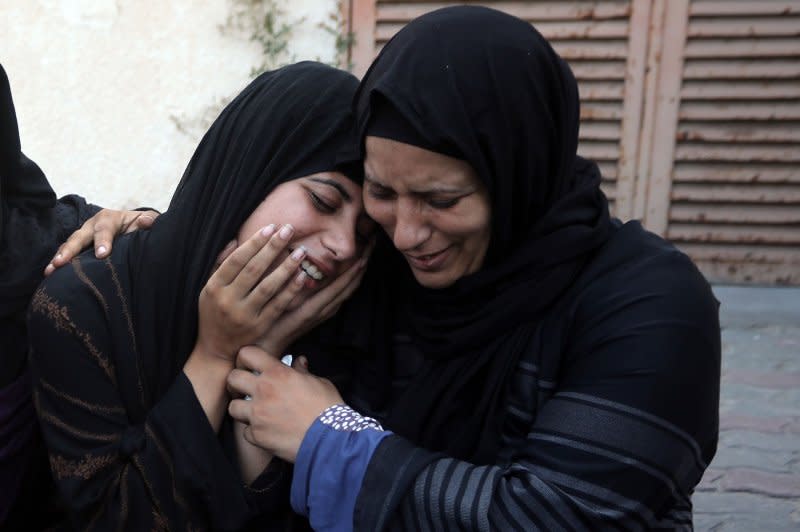
- Oops!Something went wrong.Please try again later.
Dec. 11 (UPI) -- War was an ever-present reality in 2023, while controversies in U.S. politics, climate change, labor disputes and a new monarch in Britain also dominated the headlines throughout the year.
The war in Ukraine spanned a second year, while conflict in the Middle East escalated to war between Israel and Hamas. The U.S. House of Representatives faced a rocky year with the coming and going of a new speaker and the first expulsion of a member in more than two decades.
Labor disputes rocked the auto and entertainment industries. Britain crowned a new king. And former President Donald Trump was indicted four times as he runs for re-election in 2024.
Here is a recap of the top news stories of 2023.
Israel-Hamas War

Simmering tensions in Israel and the occupied Palestinian territories erupted on Oct. 7 when thousands of Hamas fighters crossed from the Gaza Strip into Israel and massacred about 1,200 women, children and men -- most of them civilians -- and took about 240 back to Gaza as hostages. Hamas also fired thousands of rockets into Israel, some of them reaching as far as Tel Aviv.
Israel declared a state of war within hours, sealed its border with Gaza and responded with overwhelming force, vowing to destroy Hamas. Airstrikes were launched against targets in the strip and Israel Defense Forces units were sent to defend civilians in the south and confront remaining Hamas fighters.
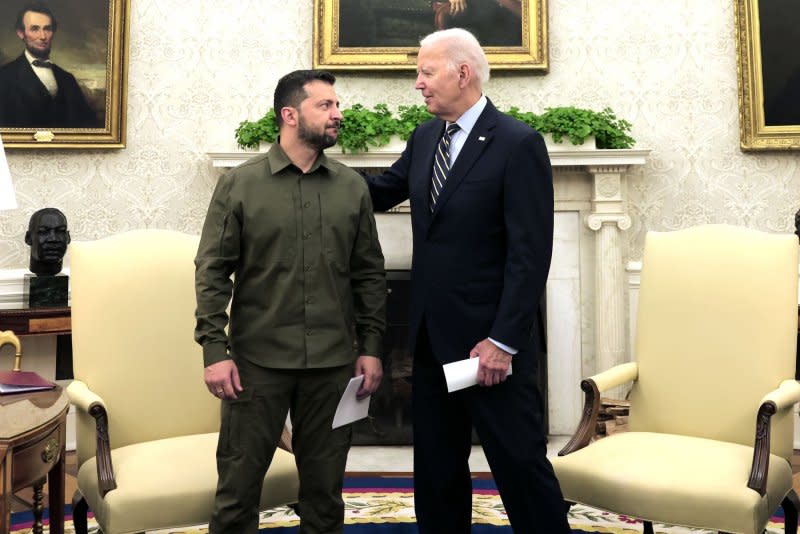
After three weeks of day and night airstrikes and artillery bombardment in which thousands of Palestinians were killed and many more made homeless, the Israeli military launched a ground offensive into northern Gaza.
As domestic pressure from hostages' families and international pressure, including from the United States, mounted over the death toll and humanitarian situation, behind-the-scenes negotiations brokered by Qatar yielded a temporary four-day truce agreement. The late November truce, which was eventually extended to seven days, saw 105 hostages released in exchange for 240 Palestinians freed from Israeli jails and hundreds of trucks loaded with aid cross into Gaza from Egypt.
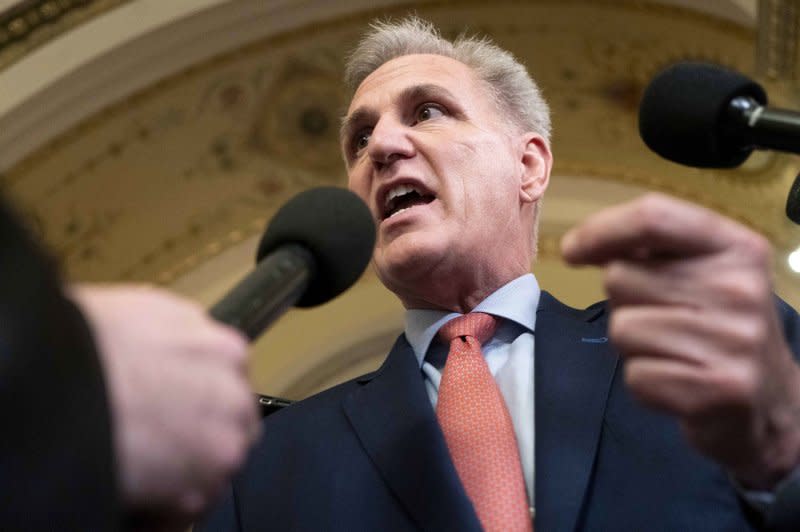
However, Qatari negotiators mediating between Israel and Hamas were unable to keep the pause going and fighting resumed Dec. 1 amid recriminations, with both sides accusing the other of breaking the agreement. Israel subsequently widened its offensive into the south of the strip, leading to some of the fiercest fighting of the war so far.
War in Ukraine
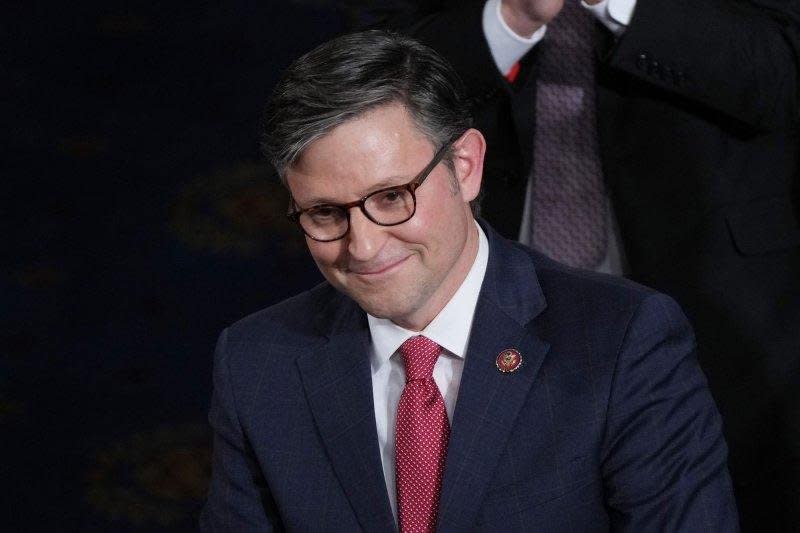
Ukraine continued its fight to expel Russian forces after its neighbor invaded in February 2022, launching a long-awaited counteroffensive in June.
Tens of thousands of Ukrainians downstream of a major hydroelectric project in Russia-occupied southern Ukraine had to be evacuated after the dam on the Dnipro River in Nova Kakhovka was blown up. Kyiv blamed Russia for the attack, which the Kremlin denied, accusing Ukraine of "sabotage" instead.
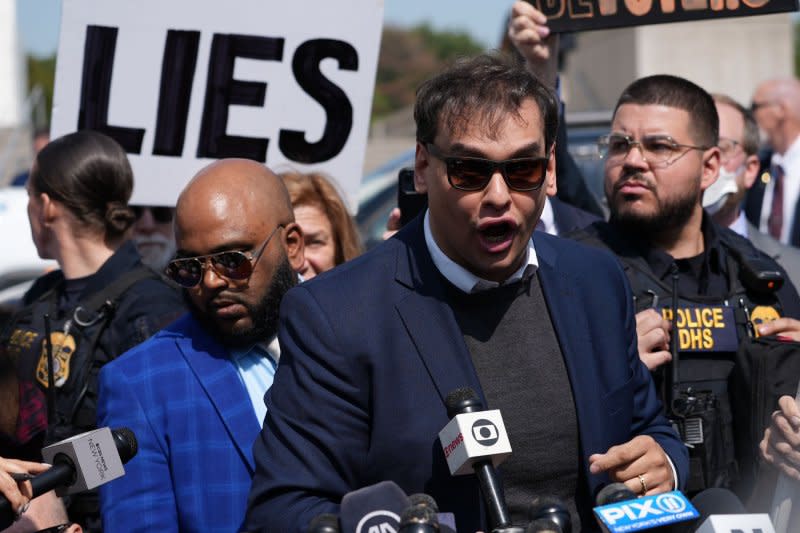
As the conflict ground on through the year, and the ground war largely at a stalemate, Russian forces resorted to aerial attacks using artillery, missiles, airstrikes and drones against strategic and, increasingly, civilian targets.
In June, the Wagner Group of private mercenaries that had aided Russia in its war effort took over the city of Rostov-on-Don and marched toward Moscow in a revolt opposing a mandate ordering its forces to sign contracts with the Russian military by the start of July.
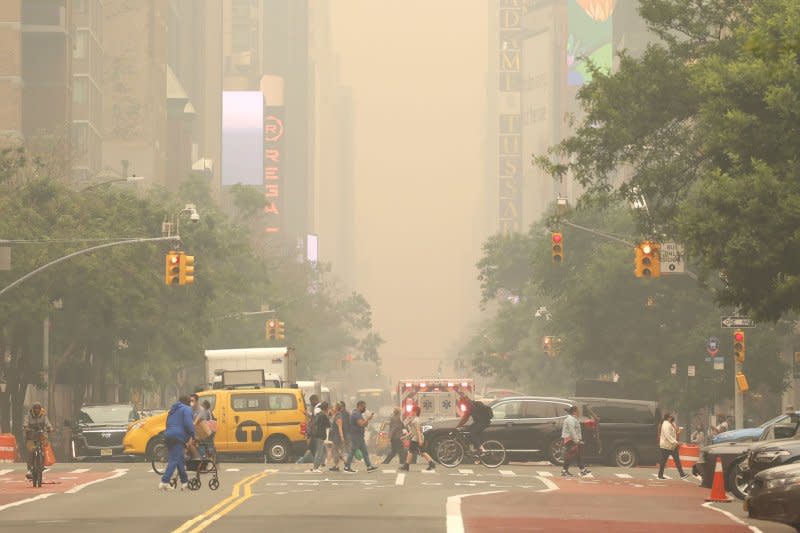
The revolt was brought to a halt as Belarusian President Alexander Lukashenko brokered a deal providing safe haven to Wagner Group leader Yevgeny Prigozhin while his soldiers were given the choice to join him in Belarus, sign on with the Russian army or return home.
Two months later, Prigozhin died in a plane crash as a private jet he was on went down while traveling from Moscow to St. Petersburg.
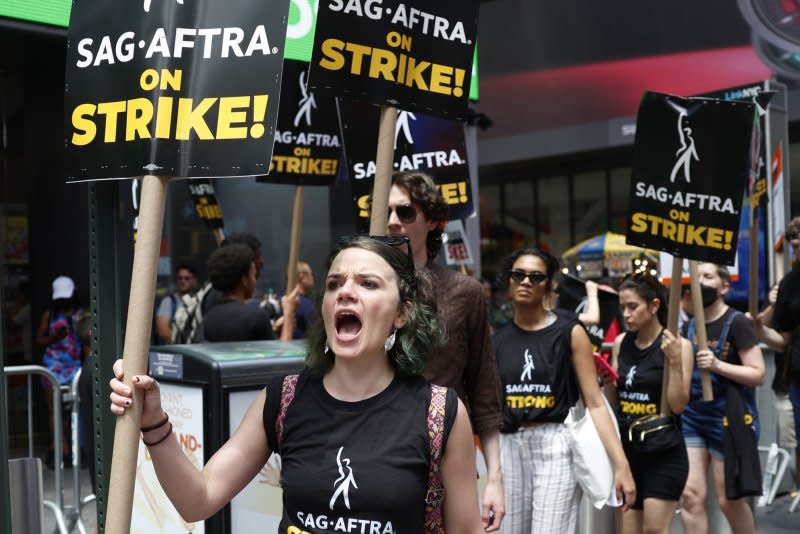
One of the deadliest attacks was a missile strike on a supermarket in the village of Hroza in Kharkiv region that killed at least 51 people in October. Ukrainian President Volodymyr Zelensky, who was in Europe lobbying for more military aid to strengthen his country's air defenses at the time, decried the strike as a "fully deliberate, demonstrative and brutal terrorist attack" on an "ordinary grocery store."
Russian President Vladimir Putin's inhumane tactics eventually caught up with him when the International Criminal Court in The Hague issued arrest warrants for him and children's commissioner Maria Lvova-Belova for deporting Ukrainian children to Russia in breach of international law.
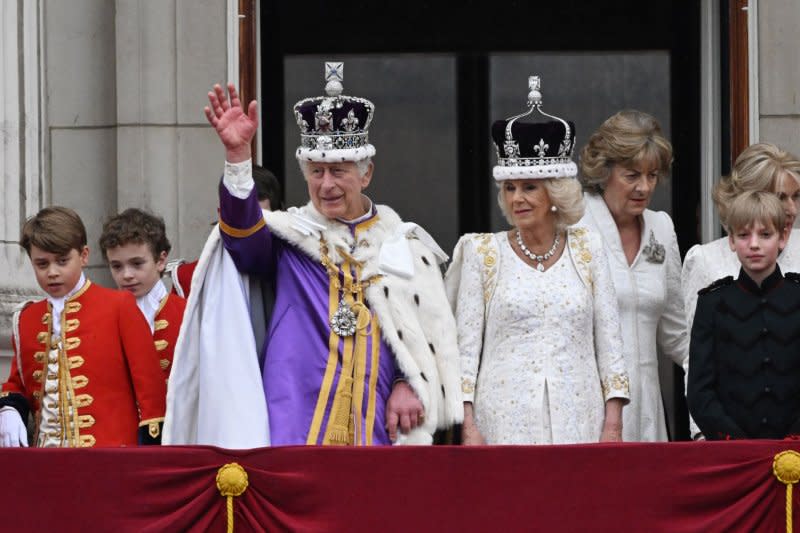
For its part, the United States launched its first-ever war crimes prosecution targeting militia members working alongside Russian forces in Ukraine. The Justice Department laid charges against four men for allegedly torturing a U.S. citizen living in Kherson during a 10-day-long kidnapping.
International backing for Ukraine largely held up with Kyiv's goal of joining the European Union edging forward as the year wore on with European Commission President Ursula von der Leyen recommending "accession negotiations" for Ukraine's eventual membership, in a November report.
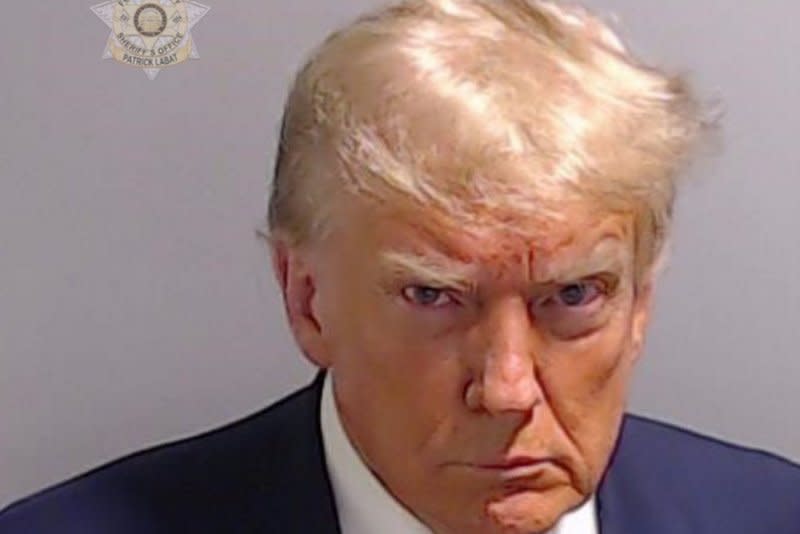
Von der Leyen said Ukraine had achieved 90% of the reforms the commission wanted to see for it to join the bloc despite fighting an "existential war."
In Washington, however, initial, unwavering U.S. support was beginning to show cracks as some in Congress balked at the ever-larger military aid packages they were being asked to authorize by the administration of President Joe Biden, totaling some $44 billion since Russia's invasion.
Tempers flared on Capitol Hill leading to Senate Republicans blocking in early December a $106 billion supplemental aid package for Ukraine, Israel and Gaza, in a row over funding for securing the southern border of the United States, which Republicans argue is insufficient.
The administration argued it was critical that the bill was passed because the funds previously appropriated for Ukraine were almost gone.
House in turmoil
Congressional Republicans in the United States saw serious internal upheaval during the year, turning on each other in a series of dramas that played out in the House of Representatives.
Rep. Kevin McCarthy, R-Calif., announced he would vacate his seat at the end of a roller-coaster year that saw him elected House speaker in January only to become the first leader to be ousted by a House vote 10 months later.
McCarthy's reign was tumultuous from the outset, taking 15 rounds of voting to finally confirm his selection to replace former Speaker Nancy Pelosi, D-Calif., after the lower chamber turned red in the November 2022 midterm elections.
In doing so, he sowed the seeds of his downfall by agreeing to demands from Republicans blocking his confirmation for a rule change under which the speaker could be removed by a vote introduced by a lone member of the House.
After being vacant for three weeks, the speaker's chair was eventually filled by the Republicans' fourth choice, Rep. Mike Johnson, R-La., who played a prominent role in the failed effort to overturn the results of the 2020 presidential election.
Johnson, who was elected by a 220-209 House vote, pledged to rein in federal spending, "decentralize" the power of the lawmaking body and that his first order of business would be to pass a resolution condemning the Oct. 7 attack by Hamas and supporting Israel's defense.
The Republicans' narrow nine-seat House majority came under pressure in early December by the expulsion of Rep. George Santos, R-N.Y., after a House Ethics Committee investigation determined he had "violated federal criminal laws."
New York Gov. Kathy Hochul has set the special election to replace Santos for Feb. 13.
The Long Island representative's 11 months in office ended five weeks after he was indicted for wire fraud, false statements, falsifying records, identity theft and access device fraud related to a credit card scheme that repeatedly charged the accounts of campaign contributors.
Santos, who pleaded not guilty to the charges with a trial set for September, subsequently mounted an effort to oust Rep. Jamaal Bowman after the Democratic representative for New York pleaded guilty in October to a misdemeanor charge of setting off a fire alarm inside a Capitol Hill office building.
Climate
Climate scientists' warnings about global warming and the link to extreme weather events grew ever louder as the year went on, with six record-breaking months and two record-breaking seasons recorded as global surface air temperature records tumbled one after the other.
Europe's Copernicus Climate Change Service said November's 14.22-degree Celsius average was the warmest November on record, following record temperatures in September and October, with 2023 highly likely to be the hottest year since records began.
November was almost 1 degree Celsius above the 1991-2020 average and about 1.75 degrees Celsius warmer than the average November in the benchmark pre-industrial era, determined by Copernicus as 1850-1900.
The global mean temperature for the 11 months of 2023 so far was the highest on record at 0.13 degrees above the 11-month average for the hottest-ever full year in 2016 and 1.46 degrees above the 1850-1900 pre-industrial average.
The temperature of the oceans, boreal sub-arctic regions and the European continent also broke records -- but November sea ice in the Arctic and Antarctic fared better, extending to 96% and 91% of their average ranges.
Labor
The year saw two costly industrial disputes in the U.S. auto and entertainment industries, both of which were eventually settled after months of wrangling that saw tens of thousands of unionized workers at the big three car makers walk out and strikes by writers and actors in Hollywood.
United Auto Workers union members at the Big Three U.S. automakers, General Motors, Ford and Stellantis, launched a strike in September after contract negotiations fell through.
UAW workers at GM voted to ratify a new labor agreement in November after workers at smaller plants prevailed over their colleagues at major facilities who wanted to reject the deal. GM estimated the strike cost it $1.1 billion.
Workers at Chrysler, Dodge and Jeep maker Stellantis followed suit the next day, also ratifying the new four-year labor contract.
Ford workers reached an agreement in October to end a 40-day strike but were the last to formally approve the deal for a 25% general wage increase over four years with an immediate 11% upon ratifying the new labor contract.
Ford said the strike cost it $1.7 billion in lost profits, expecting 2023 before-tax earnings to come in at $10 billion-$10.5 billion. It said the package would cost $8.8 billion over the four years of the contract and add $900 to the cost of the average vehicle by 2028.
The UAW's strategy of going in high and settling in the middle and securing reinstatement of automatic cost-of-living increases it had relinquished to help keep automakers afloat during the 2008-09 recession was hailed as a labor triumph amid the Big Three automakers' record profits.
On the West Coast, more than 11,000 Hollywood writers walked off the job after union wage negotiations with studios and streaming services collapsed, instantly taking nightly talk shows off the air and halting production on many scripted projects.
The writers were also seeking to maintain fixed staffing levels on shows, improved residuals from streaming of their work and greater security against being replaced by artificial intelligence.
Unionized actors shut down any remaining active studio productions when they joined in the strike in mid-July in a markedly similar dispute with the Alliance of Motion Picture and Television Producers.
After 146 days on strike, the writers returned to work in late September after winning a package that included the bulk of their demands.
Screen Actors Guild and American Federation of Television and Radio Artists members stayed out on the picket lines for four months before reaching a new two-year deal that included pay raises, regulations on the use of AI, a new compensation model for performers working in streaming and improved residual payments.
King Charles coronation
The coronation of King Charles III in May reignited national debate in Britain over whether the country's thousand-year-old monarchy remained relevant or necessary in a modern liberal democracy.
Notwithstanding its centrality to Britain's constitutional monarchy system of government, proponents pointed to the estimated $1.95 billion it brings into the economy from tourism, trade and endorsements that they say more than pays for the royal family's taxpayer-funded official expenses.
Abolitionists argued the institution's time was up, pointing to the $125 million coronation as an anachronistic example of the conspicuous and costly display of wealth and privilege that is integral to Britain's monarchy.
The Westminster Abbey ceremony was, they said extravagant and even unseemly amid a cost of living crisis, a stagnant economy, industrial unrest and double-digit inflation at a time when Britons were becoming poorer and the gap between rich and poor was widening.
In the end, the globally broadcast crowning of King Charles and Queen Camilla on May 6 in a lavish, eye-opening spectacle attended by 2,200 world leaders and celebrities and not seen since Elizabeth II's coronation in 1953, was deemed an overall success.
Trump indictments
Donald Trump, the twice-impeached former president of the United States, faced a growing slew of civil and criminal cases -- mostly related to his efforts to overturn the result of the 2020 election -- as he sought the GOP nomination to run for the White House in 2024.
Trump became the first U.S. president to be arraigned on criminal charges in March as he was indicted on 34 felony counts related to falsifying records in a series of hush-money schemes related to payments to adult film star Stormy Daniels ahead of the 2016 presidential election after the two allegedly had an extramarital affair.
He was indicted three more times throughout the year with the second coming in June and charging him with mishandling classified documents from his time in the White House.
Trump was then charged in two cases related to his efforts to overturn the results of the 2020 presidential election, with one in Washington focusing on his involvement in the Jan. 6, 2021, riots at the U.S. Capitol and a second in Georgia, centering on a Jan. 2, 2021 phone call in which Trump allegedly pressured Georgia Secretary of State Brad Raffensperger to find him more votes.
Trump has pleaded not guilty in all four cases.
The avalanche of legal troubles led to additional lawsuits seeking to bar Trump from running for re-election.
However, in early December a Colorado district judge rejected a challenge to ban Trump from the state's presidential primary ballot in March 2024 under a constitutional amendment that disqualifies candidates who've engaged in "insurrection or rebellion" against the United States.
Judge Sarah B. Wallace ordered the secretary of state to place Trump on the presidential primary ballot when it is certified on Jan. 5, 2024.
That followed a similar ruling in Minnesota's Supreme Court although, while justices kept Trump on the state's March 2024 presidential primary ballot, they left the door open for future challenges by not securing his place on the ballot for the general election.

